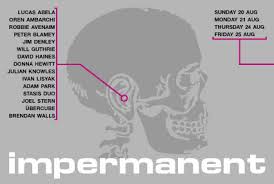i found this site trying to figure out on how to do a chapter outline. It also
has: character outline, scene outline.
http://www.creative-writing-now.com/novel-outline.html
Sunday, October 28, 2012
novel synposis
*bare with me, i really don't understand how to do this. Everybody says it is
meant to be boring.
- During surgery, Matthew has a dream while he is in surgery for cancer. About being adopted. He just thinks it is a dream
-Matthew has surgery since he was born, and was put up for adoption cuz is parents couldn't afford the surgies.
about his mid twenties, he meets this nurse, that always takes care of him.
- He falls in love with her.
-After one of his surgeries he ask the nurse to be his house nurse, to help him recover.
-She says yes.
- She moves in for only 6 months.
-He trys to dazzle her with gifts and candies.
-she keeps rejecting him.
- Half way through the six moths, he goes crazy.
-She takes him to the silem.
-He gets out after a few weeks and become normal.
- He is still in love with her, but his crazy side takes over and one night he kills the nurse in her sleep.
-still in love with her he cry
-freaks out, trys to make it look like it is a sucide.
-finds her diary, and finds out this is his older sister
-his dream is true
-goes out to find his parents, to let them know his sister killed her stuff.
-they want to become part of his life and help him
-they move in
-police go on for months and are pretty sure it is sucide for the nurse.
- the police go to the dr. and ask him some questions
-they find out that he was in love with the nurse and was put in for being crazy for a couple of weeks
-parents find out and leave quickly as they could
-Before the police get there Matthew kills himself, the same way he killed his sister.
* Please if you have any ideas, don't be afraid to comment. i will take any of them into consideration.
- During surgery, Matthew has a dream while he is in surgery for cancer. About being adopted. He just thinks it is a dream
-Matthew has surgery since he was born, and was put up for adoption cuz is parents couldn't afford the surgies.
about his mid twenties, he meets this nurse, that always takes care of him.
- He falls in love with her.
-After one of his surgeries he ask the nurse to be his house nurse, to help him recover.
-She says yes.
- She moves in for only 6 months.
-He trys to dazzle her with gifts and candies.
-she keeps rejecting him.
- Half way through the six moths, he goes crazy.
-She takes him to the silem.
-He gets out after a few weeks and become normal.
- He is still in love with her, but his crazy side takes over and one night he kills the nurse in her sleep.
-still in love with her he cry
-freaks out, trys to make it look like it is a sucide.
-finds her diary, and finds out this is his older sister
-his dream is true
-goes out to find his parents, to let them know his sister killed her stuff.
-they want to become part of his life and help him
-they move in
-police go on for months and are pretty sure it is sucide for the nurse.
- the police go to the dr. and ask him some questions
-they find out that he was in love with the nurse and was put in for being crazy for a couple of weeks
-parents find out and leave quickly as they could
-Before the police get there Matthew kills himself, the same way he killed his sister.
* Please if you have any ideas, don't be afraid to comment. i will take any of them into consideration.
Wednesday, October 24, 2012
Vocab 8
flout: to openly disregard 
caveat: a notice or warning
blazon: to proclaim widely
filch: to steal casually
fractious: bad tempered; easily irritated
equitable: fair or impartial
autonomy: self governing
addendum: in addition
amnesty: forgiveness for a pass offense
axiomatic: self-evident; unquestionable
extricate: free from constraint or difficulty
soporific: medicine inducing sleep
scathing: critical or scornful.
unwieldy: diffucult to carry or move because of size.
vapid: boring; not stimulating or challenging
prognosticate: foretell a future event
sepulchral: gloomy or dismal
salutary: positive effect; beneficial
straitlaced: exaggeratedly proper
scourge: a whipped used as punishment
precept: A rule used to regulate.
transient: impermanent
caveat: a notice or warning
blazon: to proclaim widely
filch: to steal casually
fractious: bad tempered; easily irritated
equitable: fair or impartial
autonomy: self governing
addendum: in addition
amnesty: forgiveness for a pass offense
axiomatic: self-evident; unquestionable
extricate: free from constraint or difficulty
soporific: medicine inducing sleep
scathing: critical or scornful.
unwieldy: diffucult to carry or move because of size.
vapid: boring; not stimulating or challenging
prognosticate: foretell a future event
sepulchral: gloomy or dismal
salutary: positive effect; beneficial
straitlaced: exaggeratedly proper
scourge: a whipped used as punishment
precept: A rule used to regulate.
transient: impermanent
Monday, October 22, 2012
Tuesday, October 16, 2012
who's winning
1. What does it take to win an argument? Is this/should this be the same
criteria we use to select a president?
- to know the correct information. to be convincing
-most definatley, sometimes they just ramble on and not answer straight forward. and worry about saying the other candinate is wrong, but not why.
2. Who do you think won tonight's debate? Describe in detail three reasons for your answer.
-
Obama won Tuesday night’s debate. His performance was far stronger second time around, more aggressive, more personal, and he commanded the floor. By contrast, some of the bad old Mitt from the primaries was back. The Republican shuffled around the stage and seem to tire halfway through. As he often does under pressure, Romney talked in innuendoes. Asked a question about achieving gender balance in the workplace, he replied, “Thankyou, that's an important topic” – which longtime Mitt followers know is code for “I never thought about that before.” He then told the audience that, as Governor of Massachusetts, in his search for potential female appointees he had been shown “binders full of women.” Ahem. What he learned from this experience was that “If you’re gonna have women in the workforce, they need to be more flexible.” O my. I know what he meant: you know what he meant. But the slutty minded on Twitter were in stiches.
Obama exploited Romney’s flaws. He reminded the audience that the Republican pays just over 14 per cent in federal taxes (although he tops that up with generous charitable donations) and that he u-turned on assault weapons. And at the end of the night, Romney set himself up for a painful reminder of his remarks about the 47 per cent by pledging to represent “the 100 per cent of Americans.” Predictably, Obama replied by trotting out Romney’s infamous closed-door statement about welfare recipients. In this manner, almost every Romney attack was blunted. And, as the evening wore on, the President's smile grew and he interjected more often. In fact it started to feel like he was getting more time and more generous questions. But that might have been a testament to his performance rather than a conspiracy by the organisers.
However, there are two factors that might even out Obama’s win. First, Romney was on form when talking about the economic issues – where the numbers speak for themselves. Mitt consistently won points when he was able to cite high unemployment, high debt or spiralling prices. When Obama told the audience that the rising price of gas was a sign of economic improvement, a few folks at home had to choke on their root beers. Romney synchronised those themes nicely in his closing message, when he was personal, idealistic and dignified. Recall that what won Romney the first debate wasn’t just his combativeness but also his centrism – the projection of a statesmanlike image that goes down well with swing voters desperately looking for an alternative to Obama. It’s noteworthy that undecideds in Frank Luntz’s televised focus group seemed to think that Romney won. His brand as a competent moderate isn’t diminished.
Second, Obama’s numbers might flag after a bit of fact checking is done. There were all sorts of examples of the President winging it on facts (oil drilling, gas prices etc), but the biggest snafu was on Libya. The most tense moment of the debate came when Romney accused Obama of bungling his response to the assault on the US embassy in Benghazi and falsely reporting it as a popular demonstration rather than a terrorist attack. The President asserted that he called it a terror attack all along and – remarkably – the moderator interrupted to support Obama’s claim, citing the text of a speech he gave shortly after the events unfolded. In fact, in that speech Obama did not call Benghazi a terrorist attack but instead referred vaguely and in general terms to the US being susceptible to “acts of terror.” In a follow up statement, he did not mention terror attacks at all. That’s probably because his administration continued to deny that it was a terrorist attack for many days after – whether for reasons of incompetence or political expediency.
On live TV, it appeared that Romney lost the exchange by being corrected by the President, then the moderator and then by the audience who applauded Obama’s staunch self-defence. It was great TV. But not only was it misleading, but Romney’s central point was actually rather more pertinent. In the immediate aftermath of a terrorist attack on a US embassy, the President of the United States flew to Las Vegas for a campaign fundraiser. It begs the question, what would it take to get Obama to cancel a fundraiser? World War III?
Be in no doubt, this was a much needed shot in the arm for Obama’s campaign. But how it will play out is less obvious. It’s hard to imagine that independents worried about college tuition, gas prices, jobs or debt will change their vote based on one debate. That said, Obama has run and won on rheotric before.
by:Tim Stanely.
- to know the correct information. to be convincing
-
- Prepare. Prepare until we have become the argument. Prepare until you know every scale on the hide of the fish. Having prepared, next understand that good preparation is like writing a script for a screenplay. Proper preparation requires one to tell the story and to assign roles to the parties. Cast your side as the good guys, as the side chat is unjustly accused, wrongly despised, gravely misunderstood. Cast your side as the underdog. And, when those for whom we argue cannot wear the white hat, argue their case from inside their hides.
- Open the Other to receive your argument. You have already learned how: empower the other to receive or reject your argument.
- Give the argument in the form of story. As we have seen, we are genetic storytellers and listeners to stories. Remember, fables, allegories, and parables are the traditional tools of successful argument. Every movie, every soap, every sitcom, most lyrics in popular songs, all operas and plays, most successful television commercials are in story form. So do not forget what you have learned already: jurors, the boss, the family, the Other are conditioned to listen to stories.
- Tell the truth. With ordinary words you have learned the incredible power of credibility. Being who you are is powerful. Saying how you feel is powerful. To be open and real and afraid, if you are afraid, is powerful. The power argument begins and ends by telling the truth. Truth is power.
- Tell the Other what you want. If you are arguing before a jury for money, ask for money. If you leave the Other to guess what you want, their guessing may be wrong, and guessing spoils your credibility. Remember the power of justice. Jurors will circumvent the law to mete out justice. People will break the law to obtain justice. People will die in wars to win it. People can live without food or shelter or love. This is a species that can bear every kind and character of pain except one pain--the pain of injustice. Discover the natural justice of your argument and ask for it--demand it.
- Avoid sarcasm, scorn, and ridicule. Use humor cautiously. Hold back insult. No one admires the cynic, the scoffer, the mocker, the small, and the petty. Giving respect to one’s opponent elevates us. Those who insult and slight do so from low places. Remember: Respect is reciprocal. The employment of humor can be the most devastating of all weapons in an argument. Humor is omnipotent when it reveals the truth. But beware: attempting to be funny and failing is one of the most dangerous of all strategies.
- Logic is power. If logic is on your side, ride it--ride it all the way. If logic is not on your side, if logic leads to an unjust result, it will have no power. As Samuel Butler said, "Logic is like the sword--those who appeal to it shall perish by it." Logic does not always lead to truth or justice. Logic defeats spontaneity. Logic is often dull and is more comfortable with the dead, for it is often without spirit. Do not give up creativity for logic. However, the creative mind will soon see that creativity is often served by logic.
- Action and winning are brothers. The worst of head-on attacks is often better than the most sophisticated defense. Never permit your opponent to take control. Do not defend when you can attack. Counterpunching is for boxers, and counterpunchers most often lose. The great champions of the world take control. The great generals attack first, and attack again. Take the initiative. Do something. But with those we love, the best attack is often to attack with love, and, as we shall see, winning is often accomplished by the art of losing.
- Admit at the outset the weak points in your argument. You can expose your weaknesses in a better light than your opponent, who will expose them in the darkest possible way. An honest admission, having come from you, not only endows you with credibility, it also leaves your opponent with nothing to say except what you have already admitted.
- Understand your power. Give yourself permission--only to win. But remember, arrogance, insolence, and stupidity are close relatives.
-most definatley, sometimes they just ramble on and not answer straight forward. and worry about saying the other candinate is wrong, but not why.
2. Who do you think won tonight's debate? Describe in detail three reasons for your answer.
-
Obama won Tuesday night’s debate. His performance was far stronger second time around, more aggressive, more personal, and he commanded the floor. By contrast, some of the bad old Mitt from the primaries was back. The Republican shuffled around the stage and seem to tire halfway through. As he often does under pressure, Romney talked in innuendoes. Asked a question about achieving gender balance in the workplace, he replied, “Thankyou, that's an important topic” – which longtime Mitt followers know is code for “I never thought about that before.” He then told the audience that, as Governor of Massachusetts, in his search for potential female appointees he had been shown “binders full of women.” Ahem. What he learned from this experience was that “If you’re gonna have women in the workforce, they need to be more flexible.” O my. I know what he meant: you know what he meant. But the slutty minded on Twitter were in stiches.
Obama exploited Romney’s flaws. He reminded the audience that the Republican pays just over 14 per cent in federal taxes (although he tops that up with generous charitable donations) and that he u-turned on assault weapons. And at the end of the night, Romney set himself up for a painful reminder of his remarks about the 47 per cent by pledging to represent “the 100 per cent of Americans.” Predictably, Obama replied by trotting out Romney’s infamous closed-door statement about welfare recipients. In this manner, almost every Romney attack was blunted. And, as the evening wore on, the President's smile grew and he interjected more often. In fact it started to feel like he was getting more time and more generous questions. But that might have been a testament to his performance rather than a conspiracy by the organisers.
However, there are two factors that might even out Obama’s win. First, Romney was on form when talking about the economic issues – where the numbers speak for themselves. Mitt consistently won points when he was able to cite high unemployment, high debt or spiralling prices. When Obama told the audience that the rising price of gas was a sign of economic improvement, a few folks at home had to choke on their root beers. Romney synchronised those themes nicely in his closing message, when he was personal, idealistic and dignified. Recall that what won Romney the first debate wasn’t just his combativeness but also his centrism – the projection of a statesmanlike image that goes down well with swing voters desperately looking for an alternative to Obama. It’s noteworthy that undecideds in Frank Luntz’s televised focus group seemed to think that Romney won. His brand as a competent moderate isn’t diminished.
Second, Obama’s numbers might flag after a bit of fact checking is done. There were all sorts of examples of the President winging it on facts (oil drilling, gas prices etc), but the biggest snafu was on Libya. The most tense moment of the debate came when Romney accused Obama of bungling his response to the assault on the US embassy in Benghazi and falsely reporting it as a popular demonstration rather than a terrorist attack. The President asserted that he called it a terror attack all along and – remarkably – the moderator interrupted to support Obama’s claim, citing the text of a speech he gave shortly after the events unfolded. In fact, in that speech Obama did not call Benghazi a terrorist attack but instead referred vaguely and in general terms to the US being susceptible to “acts of terror.” In a follow up statement, he did not mention terror attacks at all. That’s probably because his administration continued to deny that it was a terrorist attack for many days after – whether for reasons of incompetence or political expediency.
On live TV, it appeared that Romney lost the exchange by being corrected by the President, then the moderator and then by the audience who applauded Obama’s staunch self-defence. It was great TV. But not only was it misleading, but Romney’s central point was actually rather more pertinent. In the immediate aftermath of a terrorist attack on a US embassy, the President of the United States flew to Las Vegas for a campaign fundraiser. It begs the question, what would it take to get Obama to cancel a fundraiser? World War III?
Be in no doubt, this was a much needed shot in the arm for Obama’s campaign. But how it will play out is less obvious. It’s hard to imagine that independents worried about college tuition, gas prices, jobs or debt will change their vote based on one debate. That said, Obama has run and won on rheotric before.
by:Tim Stanely.
self Reliance
1. We all have our own ideas. We should always speak our mnds even though we are afraid. Not to be strongly influence by others
2.The need for the individual to avoid conformity false consity and follow his/her enstics and ideas.
3.Envy is ignorance
4.What you are going to focus on in the picture and what not to focus on
5.Each one of us are divine like.
6.Iron is ore strong. If you know who you are than you won't break.
7.go up and beyond. rebellion in education.
8.Man doesn't trust people around him.
9.Strong feelings and opinions in what you believe in.
10Taken advantage. use is it against you. stubbourn.
11.critizism is hard.
12.Emerson begins his major work on individualism by asserting the importance of thinking for oneself rather than meekly accepting other people's ideas. As in almost all of his work, he promotes individual experience over the knowledge gained from books: "To believe that what is true in your private heart is true for all men — that is genius." The person who scorns personal intuition and, instead, chooses to rely on others' opinions lacks the creative power necessary for robust, bold individualism. This absence of conviction results not in different ideas, as this person expects, but in the acceptance of the same ideas — now secondhand thoughts — that this person initially intuited.
2.The need for the individual to avoid conformity false consity and follow his/her enstics and ideas.
3.Envy is ignorance
4.What you are going to focus on in the picture and what not to focus on
5.Each one of us are divine like.
6.Iron is ore strong. If you know who you are than you won't break.
7.go up and beyond. rebellion in education.
8.Man doesn't trust people around him.
9.Strong feelings and opinions in what you believe in.
10Taken advantage. use is it against you. stubbourn.
11.critizism is hard.
12.Emerson begins his major work on individualism by asserting the importance of thinking for oneself rather than meekly accepting other people's ideas. As in almost all of his work, he promotes individual experience over the knowledge gained from books: "To believe that what is true in your private heart is true for all men — that is genius." The person who scorns personal intuition and, instead, chooses to rely on others' opinions lacks the creative power necessary for robust, bold individualism. This absence of conviction results not in different ideas, as this person expects, but in the acceptance of the same ideas — now secondhand thoughts — that this person initially intuited.
Sunday, October 7, 2012
vocaulary fall #7
ad infinitum- With out end.
sentence-John spoke about his interest in collecting beermats and went on ad infinitum."
apportion- a part of something.
sentence-bona fide-real.
sentence-a bona fide agreement
buoyant-cheerful; kept afloat.
sentence- She seemed buoyant when she pass the oral poem.
clique- mutiple groups seperate.
Sentence- In high school there is lots of cliques
concede- to achknowldge.
I was trying to concede the shy girl in the group.
congenial-Suitable.
Sentence- The hotel was congenial.
lofty-exaulted rank; dignity
Sentence- the general was being lofty when his men were dieing quickly.
migration- to move to a new place.
Sentence-The mormons had a migrations to Salt Lake City.
perceive-To become aware
Sentence- I was perceive when the told me about my sister was getting married
perverse- determined.
Sentence- That girl was perverse on coming home even though she was out my a mile.
prelude- primarly to the action
Sentence-Work as a kitchen maid came as a prelude to marriage and motherhood
rancid-unpleasent smell.
The football team was rancid when they came off the field into the stands.
rustic- pertaining to.
I was trying to rustic towards the theme of the book.
sever- taken to extereme.
She was severly hurt
sordid-selfish
That girl was sordid when it came to her food
untenable-un capable of defending
The little boy was untenable to the bullys
versatile-changeable
the grade is versatile if you actually try
vindicate- justify by arguement
i was vindicate on my side when the principal asked me what happen
wane- decrease power
The military wane in the civil war
sentence-John spoke about his interest in collecting beermats and went on ad infinitum."
apportion- a part of something.
sentence-bona fide-real.
sentence-a bona fide agreement
buoyant-cheerful; kept afloat.
sentence- She seemed buoyant when she pass the oral poem.
clique- mutiple groups seperate.
Sentence- In high school there is lots of cliques
concede- to achknowldge.
I was trying to concede the shy girl in the group.
congenial-Suitable.
Sentence- The hotel was congenial.
lofty-exaulted rank; dignity
Sentence- the general was being lofty when his men were dieing quickly.
migration- to move to a new place.
Sentence-The mormons had a migrations to Salt Lake City.
perceive-To become aware
Sentence- I was perceive when the told me about my sister was getting married
perverse- determined.
Sentence- That girl was perverse on coming home even though she was out my a mile.
prelude- primarly to the action
Sentence-Work as a kitchen maid came as a prelude to marriage and motherhood
rancid-unpleasent smell.
The football team was rancid when they came off the field into the stands.
rustic- pertaining to.
I was trying to rustic towards the theme of the book.
sever- taken to extereme.
She was severly hurt
sordid-selfish
That girl was sordid when it came to her food
untenable-un capable of defending
The little boy was untenable to the bullys
versatile-changeable
the grade is versatile if you actually try
vindicate- justify by arguement
i was vindicate on my side when the principal asked me what happen
wane- decrease power
The military wane in the civil war
Saturday, October 6, 2012
Midterm
A) I thought the first section I did very. I was pretty cofident after I finished.
B) Than the second section was really ify, and I knew that I had some different deffintions for a few of the words. And they were not up there. So I tried to look at some what of the rootwords.
C) The first section most definately. But I liked how I study for it, and will use that for other subjects.
D)Um to totally check my definitions to make sure that i got the right one.
B) Than the second section was really ify, and I knew that I had some different deffintions for a few of the words. And they were not up there. So I tried to look at some what of the rootwords.
C) The first section most definately. But I liked how I study for it, and will use that for other subjects.
D)Um to totally check my definitions to make sure that i got the right one.
Monday, October 1, 2012
Ideas for midterm
- flash cards
- Set Daily Study Times. Set periods of time that you will spend studying each day. Once you spend a month reinforcing these learning periods, it will become automatic. Regular studying times prevent the need for cramming and can give you consistency in your schedule.
- Read Papers Upside Down. A good editing habit when checking over your essays and assignments is to read them upside down. This prevents you from speed reading the page and missing grammatical or sentence structure errors. This also gives you a better feeling of how an essay might be read through fresh eyes, letting you improve your style.
- Take short breaks frequently. Your memory retains the information that you study at the beginning and the end better than what you study in the middle
- Keep a "log book" or record of needs to be accomplished in each study section. Your child can look over it later and be impressed with themselves!
- Say the word aloud to activate your auditory memory. Relate the word to words you already know. For example, the word GARGANTUAN (very large) has a similar meaning to the words gigantic, huge, large, etc. You could make a sequence: small, medium, large, very large, GARGANTUAN. List as many things as you can that could be considered GARGANTUAN: Godzilla, the circus fat lady, the zit on your nose, etc. Create pictures of the word's meaning that involve strong emotions. Think "the GARGANTUAN creature was going to rip me apart and then eat me!"
- Play Scrabble, Boggle, and do crossword puzzles. These and other word games are available for the computer, so you are not dependent on a partner to play. Also, try out the Franklin Electronic Dictionary that features built-in word games.
- Playing games, such as the ones on this site, that test your knowledge will help you learn new words and also let you know how much progress you're making. Offline
- sources for vocabulary tests include SAT prep books (we recommend "10 Real SATs" by ETS), and the Reader's Digest Wordpower section. For more, check out Amazon.com or your local bookseller.
- http://www.vocabulary.co.il/
- review your notes that you take everyday.
Hunger games- suzanne collins.
1.-Set in a future North America known as "Panem", the Capitol selects a boy and a girl between the ages of 12 and 18 from each of the twelve outlying districts to compete in the annual "Hunger Games", a televised fight-to-the-death. The film is centered around Katniss Everdeen - a 16-year-old girl from District 12, who volunteers for her 12-year-old sister, Prim, when Prim's name is chosen - and Katniss's fellow District 12 tribute, Peeta Mellark, whom she has some rather dramatic history with. Katniss is then rushed to the Capitol, where she undergoes intense training, before being thrust into the arena to fight to become the victor of the seventy-fourth annual Hunger Games.- show a future of north america.
2. The Hunger Games are just full of sacrifices. Katniss makes a huge personal sacrifice when she takes her sister's place in the Hunger Games. She and Peeta sacrifice themselves for each other at the end of the Games when they pop the berries in their mouth. Katniss and Peeta are willing to die together. Or they would have, if the announcer hadn't stopped them. Sacrifices make a big impact because they remind us that human life means something. In a world of reality entertainment like the Hunger Games, that can be a very powerful thing.
3.the moment when Katniss volunteered as tribute for her sister, and to find medicine for Peeta.
4.The districts all have distinct personalities (District 12, for example, is a coal-mining community; District 11 is primarily agricultural), ;
The mockingjay pin is the circular gold token Katniss wears during the Games to represent District 12. Each tribute is allowed one item to remind them of their friends and family in their home district; the small pin bearing the image of a bird in flight is Katniss's. The mockingjay pin was originally given to KatnissKatniss's departure to the Capitol to participate in the Hunger Games (. Though Katniss forgets about the pin during her training sessions, Cinna, her stylist, is sure to place the mockingjay prominently on Katniss's outfit for the arena. He tells her that the little pin "barely cleared the review board" since the authorities thought Katniss might be able to use the pin as a weapon . While the thought of a tiny little pin being used as a weapon might seem silly to us, the image of the mockingjay, as we will find out, is indeed an incredibly powerful and important weapon.
Characterazition:
1. indirect-The dizziness has subsided and while my left ear is deafened, I can hear a ringing in my right, which seems a good sign.
The first thing i do is dig out my own glasses and put them on, which relaxes me a little, to have at least one of my hunter's senses working.
direct-Cato has finished the first phase of his tantrum and takes out his anger the smoking remains by kicking open various cantainers.
the boy from District 3 throws stones into the ruins and must have declared all the mins activated because the careers are approaching the wrrekage.
2. Syntax-
Let the odds ever be in your favor- means that you might have a chance in not going to the hunger games. just like the saying count your blessings.
3. very flat, suzanne is very forward with her literature. doesn't really go into detial on the picture. protagnist- Katniss Dynamic- Katniss and peeta because they fallen in love. Supposable.
4. Usually i put my self into the characters footsteps. and visualize that i am in the story. but it was really hard because the author was really straight forward so i couldnt imagine.
2. The Hunger Games are just full of sacrifices. Katniss makes a huge personal sacrifice when she takes her sister's place in the Hunger Games. She and Peeta sacrifice themselves for each other at the end of the Games when they pop the berries in their mouth. Katniss and Peeta are willing to die together. Or they would have, if the announcer hadn't stopped them. Sacrifices make a big impact because they remind us that human life means something. In a world of reality entertainment like the Hunger Games, that can be a very powerful thing.
3.the moment when Katniss volunteered as tribute for her sister, and to find medicine for Peeta.
4.The districts all have distinct personalities (District 12, for example, is a coal-mining community; District 11 is primarily agricultural), ;
The mockingjay pin is the circular gold token Katniss wears during the Games to represent District 12. Each tribute is allowed one item to remind them of their friends and family in their home district; the small pin bearing the image of a bird in flight is Katniss's. The mockingjay pin was originally given to KatnissKatniss's departure to the Capitol to participate in the Hunger Games (. Though Katniss forgets about the pin during her training sessions, Cinna, her stylist, is sure to place the mockingjay prominently on Katniss's outfit for the arena. He tells her that the little pin "barely cleared the review board" since the authorities thought Katniss might be able to use the pin as a weapon . While the thought of a tiny little pin being used as a weapon might seem silly to us, the image of the mockingjay, as we will find out, is indeed an incredibly powerful and important weapon.
Characterazition:
1. indirect-The dizziness has subsided and while my left ear is deafened, I can hear a ringing in my right, which seems a good sign.
The first thing i do is dig out my own glasses and put them on, which relaxes me a little, to have at least one of my hunter's senses working.
direct-Cato has finished the first phase of his tantrum and takes out his anger the smoking remains by kicking open various cantainers.
the boy from District 3 throws stones into the ruins and must have declared all the mins activated because the careers are approaching the wrrekage.
2. Syntax-
Let the odds ever be in your favor- means that you might have a chance in not going to the hunger games. just like the saying count your blessings.
3. very flat, suzanne is very forward with her literature. doesn't really go into detial on the picture. protagnist- Katniss Dynamic- Katniss and peeta because they fallen in love. Supposable.
4. Usually i put my self into the characters footsteps. and visualize that i am in the story. but it was really hard because the author was really straight forward so i couldnt imagine.
Subscribe to:
Comments (Atom)